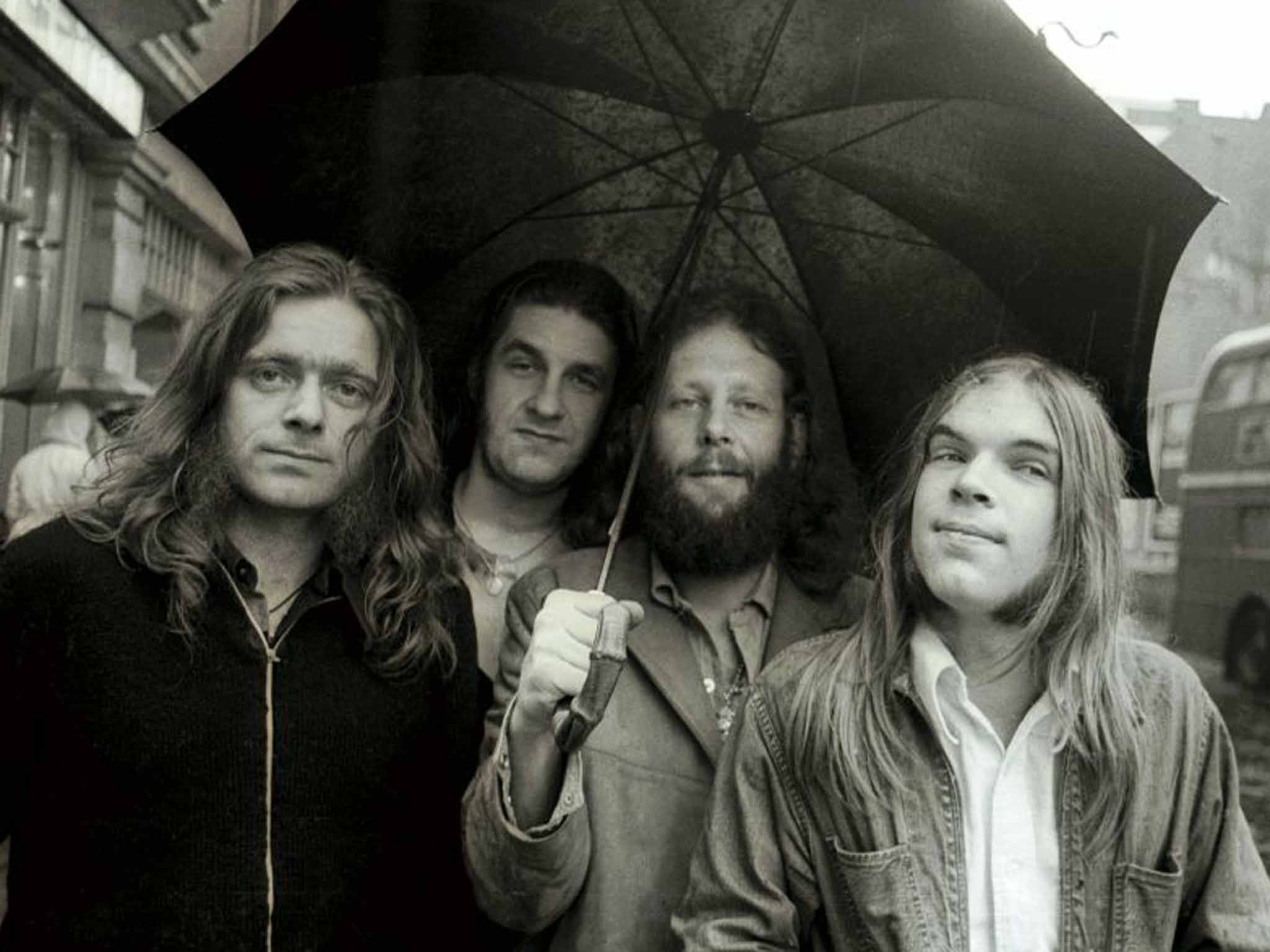Bruce Rowland: Musician who drummed for Joe Cocker at Woodstock then joined the folk-rock giants Fairport Convention
Rowland joined Fairport Convention during one of their most turbulent and fractious periods, when they were peering into the abyss

Though Bruce Rowland appeared only fleetingly on screen, about 20 seconds into "With a Little Help from My Friends" he was there the whole way as Joe Cocker, all tie-dye, sideburns, air instruments and flailing arms, dominated the Woodstock stage. This definitive reinvention of a popular song, by the Beatles, rivals Jimi Hendrix's version of Bob Dylan's "All Along The Watchtower". Rowland's performance is a masterclass in accompanying a vocalist and developing shifting dynamics. In fact, when Cocker reprised it at the Queen's Golden Jubilee in June 2002, Phil Collins stuck close to Rowland's pounding fills and parts.
Rowland was born in 1939, the first of two children born to John Rowland, an engineer and draughtsman, and Hilda. He fell into studio session work, including drumming for Mick Weaver, trading as Wynder K Frog on Out of the Frying Pan (1968).
Afterwards, bassist Alan Spenner, guitarist and slide guitarist Neil Hubbard and Rowland from that session coalesced, with Henry McCullough on lead guitar and Chris Stainton on keyboards, into the Grease Band, backing Cocker on his second album, Joe Cocker! recorded in Hollywood and released in November 1969. Things happened fast. That June they played in San Francisco, bottom of the bill and last to go on. Rolling Stone's Ben Fong-Torres wrote, "Fillmore West never felt so good. Just 500 of us [remaining] scattered around the floor in front of the stage."
In August 1969 they had two festival appearances. Their best-known performance took place on the third day of Woodstock. Their afternoon performance made cultural and musical history. Weeks later, they appeared at the second Isle of Wight Festival.
Rolling Stone's review of "With A Little Help From My Friends" (1969), on which Rowland had not played in the studio, garnered Cocker flattering comparisons with Ray Charles. Joe Cocker! debuted the Grease Band, and reviewing it in February 1970, Greil Marcus, one of the era's most eminent rock critics, hailed them as "one of the toughest rhythm and blues bands outside of the Motown studios".
Seduced by America and in need of rest, Cocker disbanded the group, only for another project to launch almost straightaway. He took only Stainton to the Mad Dogs & Englishmen project, while the remaining Grease Band members soldiered on, releasing The Grease Band (1971) and Amazing Grease (1975). All bar Stainton became the core of the quasi-house band for the sessions at Olympic Sound Studios that produced the original 1970 double LP release of Andrew Lloyd Webber and Tim Rice's rock opera, Jesus Christ Superstar.
Rowland joined Fairport Convention during one of their most turbulent and fractious periods, when they were peering into the abyss. Island Records bailed them out, funding them to record at Olympic with Glyn Johns producing. With a reputation to compare favourably with perhaps only Abbey Road, the Barnes studio had provided the setting for influential records by the Rolling Stones, the Beatles, the Who and Led Zeppelin.
The group that started the sessions was Fairport Convention's "three Daves" – bassist Pegg, drummer Mattacks and fiddler Swarbrick – and the ex-Fotheringay faction of vocalist Sandy Denny, her husband, guitarist Trevor Lucas, and lead guitarist Jerry Donahue. The sessions began in December 1974, pausing in January when they broke off to meet other commitments. By the time they resumed in February, Mattacks, or DM, had left, at odds with Johns and tired of being in "a struggling band". After Fotheringay's Gerry Conway declined to join and auditions had taken place, they went with Johns' suggestion of Rowland.
Interviewed in Mick Houghton's I've Always Kept A Unicorn – The Biography of Sandy Denny (2015), he recalled, "DM had defined electric folk as far as the drums went and I was really stepping into the shoes of a legend." Rowland stayed until 1979, expanding their sound palette with piano and organ and forming an occasional songwriting partnership with Swarbrick, for example, on "Gottle O' Gear" (1976).
He would return periodically, appearing at their annual festival at Cropredy in Oxfordshire. Asked to cite his influences for the 1985 programme, Rowland riffed, "Jo Lustig, Joe Stalin, Joe Cocker" – Lustig (Independent obituary, 2 June 1999) had managed a string of folk and pop acts, including at one point Fairport Convention, sending them on an extraordinarily sloppily organised US tour. It was typical of the sense of humour that stood Rowland in good stead. He left Fairport in 1979 and moved to Denmark, later returning to Britain and settling in Devon.
Richard Bruce Rowland, musician: born Middlesex 20 May 1939; married firstly Sylvia Jean Taylor (divorced), 1979 Birgitte Swarbrick (divorced), 2015 Barbara Pamela; died Torquay 30 June 2015.
Subscribe to Independent Premium to bookmark this article
Want to bookmark your favourite articles and stories to read or reference later? Start your Independent Premium subscription today.

Join our commenting forum
Join thought-provoking conversations, follow other Independent readers and see their replies